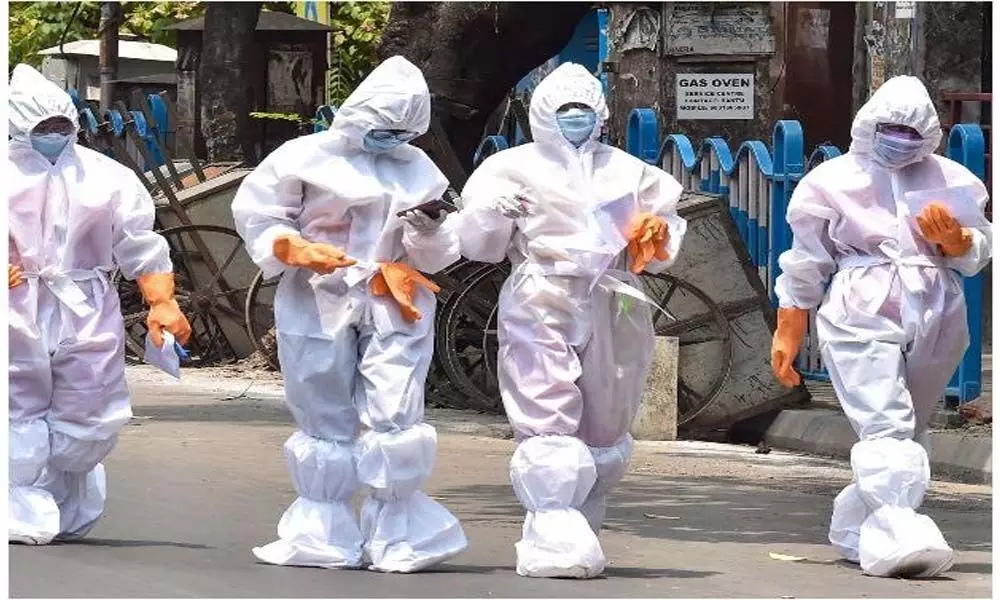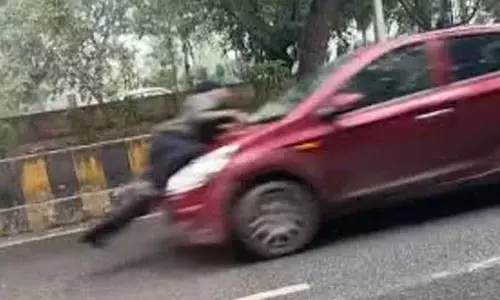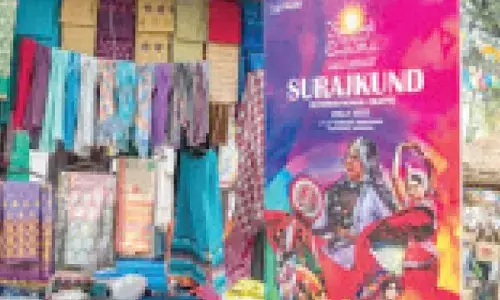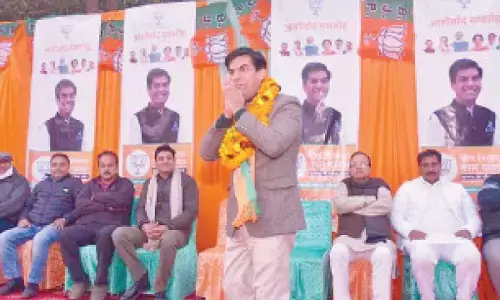Lockdown in South Andaman district as Covid cases surge

Lockdown in South Andaman district
The administration in the South Andaman district has decided to enforce a total lockdown from Monday to contain the Covid surge that could particularly endanger the primitive tribesmen in India's eastern-most archipelago.
Kolkata : The administration in the South Andaman district has decided to enforce a total lockdown from Monday to contain the Covid surge that could particularly endanger the primitive tribesmen in India's eastern-most archipelago.
Order no 82 issued by District Magistrate of South Andaman, a copy of which is available with IANS, says the decision has been taken "in view of the unprecedented surge in the positive cases of Covid-19 in the Islands".
DM Suneel Anchipaka said that his administration has been taking various proactive steps to contain the spread of the virus in the district, the most populous in the Andamam & Nicobar Islands chain.
Anchipaka's order says the lockdown will help put in place "strict measures of isolation and social distancing in the South Andaman district".
It said such measures were needed "to prevent any disturbance to the peace and tranquility as well as to control the surge in the cases of Covid-19".
Public anger has been rising in South Andaman, where the capital Port Blair is located, in view of the Covid surge.
Port Blair residents have alleged that there has been 30 to 40 daily cremations in the town's Junglighat burning ghat, although the state's Govind Ballabh hospital admits that there were only two to three deaths a day.
"There is an absolute lack of testing kits, so the real level of afflictions appears to be higher than evident," says a Port Blair resident.
On Saturday, the South Andaman administration provided the official details related to the Covid surge, believed to have been caused by travellers who visited India's mainland states after mid-March at the start of the second wave.
The total confirmed cases stood at 6,789, while the overall number of cured/discharged patients increased to 6,417.
The overall death toll was 98, while the total number of active cases stood at 274.
The total positivity rate was 1.78 per cent, while there were 14 containment zones.
The DM's order said shops selling essential items such as provision Stores, vegetables, groceries, fruits, dairy and milk booth/shop, meat, animal feed/fodder, bakeries will be allowed to open between 6 a.m. to 8 a.m. during the lockdown.
"It shall be the sole responsibility of the owner/incharge of the shop/business establishment to ensure its compliance, failing which he shall be liable to be fined Rs 25,000," the order said.
The order did say that movement shall be allowed for emergency cases, medical emergencies, pregnant women and patients availing medical services.
Anthropologists say they are worried that the Covid surge, if it spreads to remote areas of the island chain, may endanger primitive tribesmen like Jarawas, Onges, Sentinelese and Great Andamese, whose numbers to a few hundreds and, in some cases below three-digits.
The Negrito tribes, perhaps the most ancient inhabitants of South Asia, have seen their numbers drop every time an epidemic has hit them.
The Jarawas lost nearly 50 children during the measles epidemic in 2006, two years after the islands were hit by the deadly 2004 tsunami.
The tribes have been adversely since successive Indian governments decided on mass contact programmes to 'mainstream' them, little realising their fragile immunity .










